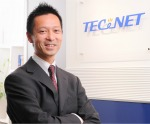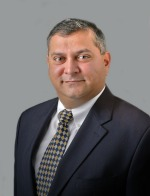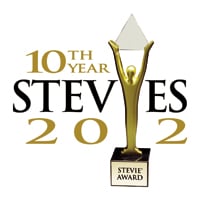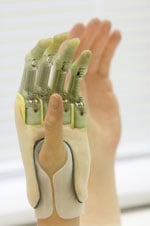TECNET of Tokyo, Japan, was honored as a Distinguished Honoree in the company awards category for Most Innovative Company in Asia (China, Japan, and Korea) in The 2010 International Business Awards, the world's premier business awards program. (The 2012 IBAs are now accepting entries. Request your entry kit here and submit entries by the April 11 early-bird deadline for discounted entry fees.) As part of our 10th anniversary celebration, we will be talking to a number of organizations around the world on how being honored in one of our corporate awards competitions has helped their business. Here we speak to the innovation awards winning CEO, Kiichiro Suda, about the role their Stevie® Award title has had in increasing profits.
How has being a Distinguished Honoree in The 2010 International Business Awards helped TECNET to promote its brand? 
First, we found that the actual process of entering the IBAs—preparing and filling out the application—was extremely useful for us, because it made us focus on our business plan and strategy.
When we received the IBA results, we announced the award on our corporate website, in handouts, and in our recruiting media. We also shared the news with colleagues, posting the news on 30 different social media sites in Tokyo.
Although TECNET had actually been in deficit in the five years prior to when we submitted our IBA entry in 2009, we began to see a turnaround after we were named a Distinguished Honoree in 2010. By 2011, our profits had doubled, and we expect to double those profits again (400% over fiscal year 2010) by the end of this year.
What event has had the most impact on your business over the past ten years?
We started TECNET from nothing in 2005. The biggest event for us was the Lehman Brothers financial crisis in 2008, after which we had to completely restructure our business. TECNET had its first monthly surplus in December 2008, but right after that went into deficit again. We struggled for another 18 months but eventually got back into profit by overhauling the organization and improving the quality of our service.
What are your company’s plans for the future?
Our company currently has a staff of 60 and we want to increase that to 200 by 2017 in order to be able to provide effective services to more small and medium-sized enterprises. Additionally we want to spread the concept of a good way of working that in Japan we call "rental-employees."
What are your top IT tips for small businesses?
Because every company has a different structure—from the market it serves and its business model to the maturity of its organization—I only have one suggestion: I would recommend that smaller businesses consider the "rental-employee” model as an IT solution. This way, companies with smaller budgets can organize their IT to best suit their individual business style and structure.
What quality or qualities do you most value in your business associates?
I think both customer satisfaction and employee development are the most significant goals to achieve in business.
As someone at the top of your profession, what keeps you inspired or makes you hit the ground running in the morning?
The positive feedback I get from TECNET’s clients or “rental-employees” always gives me a tremendous rush.
About Kiichiro Suda:
TECNET’s President & CEO Kiichiro Suda is an entrepreneur. After studying at Waseda University in Tokyo, Suda acquired hands-on experience of marketing and business development through employment at various companies. In 1997, he founded the Q&A Corporation and was its CEO/COO until 2004. At the end of Suda’s 8-year tenure, Q&A Corporation’s annual sales were 4 billion yen (approx. $50 million). Q&A Corporation is now a leading Japanese provider of technical support services (Phone/Email/On-Site) for individuals, and in 2010 the company recorded sales of 10 billion yen (approx. $126 million). Suda founded TECNET, Inc. in 2005.
About TECNET
TECNET is an IT administration outsourcing company for small and medium-sized businesses (SMBs) in Tokyo. It helps SMBs’ IT operation, management, and strategy. TECNET doesn’t sell computer products: it provides a human service for its corporate clients by providing an overview of their IT organizations. TECNET currently has 220 clients, 60 employees, and a web community with more than 1,700 members.

 RiseSmart is helping to put America back to work by providing next-generation outplacement solutions to transitioning employees. The company combines a sophisticated technology with consulting services to not only help employers with their workforce strategies, but to help displaced employees with their career strategies.
RiseSmart is helping to put America back to work by providing next-generation outplacement solutions to transitioning employees. The company combines a sophisticated technology with consulting services to not only help employers with their workforce strategies, but to help displaced employees with their career strategies. Meltwater Entrepreneurial School of Technology
Meltwater Entrepreneurial School of Technology Games
Games ProDigits
ProDigits If the Stevie Awards gave awards for best-named product of the year, “
If the Stevie Awards gave awards for best-named product of the year, “